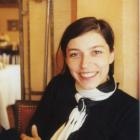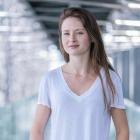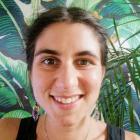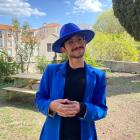Julien Benedetto
Julien Benedetto obtained his Master's degree in Journalism from the Marseille School of Journalism and Communication (EJCM) in 2003.
After short periods of work experiences at La Voix du Nord, France Bleu Nord and France 3 Lille, he made his first reports for the 1 p.m. and 8 p.m. newscasts of France 2 in the "society" and "investigations and reports" departments (news). In 2004 and 2005, he presented the sports column in the program Télématin.
Between 2005 and 2016, he covered major sporting events for the 1 p.m. and 8 p.m. newscasts: Beijing Olympics, Vancouver Olympics, London Olympics, Sochi Olympics, Rio Olympics, Euro 2012, 2014 World Cup in Brazil, Euro 2016 in France, Tour de France, Roland-Garros, 6 Nations Tournament, Dakar, Davis Cup, World Ski Championships and Route du Rhum. Between 2010 and 2016, Julien Benedetto is a regular presenter of the news at 7 am and 8 am in the program Télématin.
In December 2010, he received a golden microphone for a report made at the Vancouver Olympics. In December 2012, he received a golden microphone for a report made at the London Olympic Games.
Since January 2022, Julien Benedetto hosts the 2:00 pm / 4:00 pm news on the Franceinfo channel. He is also a regular news presenter for the 13 h of France 2. He has the particularity of having presented, as a regular journalist, almost all the editions of the news of France Televisions: Télématin, 13 h and 20 h on France 2 but also 12/13 and Soir 3 on France 3.
Azzeddine Ahmed-Chaouch
Graduated from EJCAM in 2006 (EJCM at the time), Azzeddine Ahmed-Chaouch joined Le Parisien-Aujourd'hui en France after winning the Pascale Gérin Prize (Best intern of the summer 2016). He did his training in the very formative "news" department where he covered, in particular, the Courjault affair known as the "frozen babies". He then joined the brand new "web" service and revealed the famous "Casse-toi pov' con" video on the site. Afterwards, he integrated the political service where he covers the news of the extreme right, fueled by the succession of Jean-Marie Le Pen in the FN party.
In 2009, M6 hires him to join the new team that will launch the first evening newscast of the channel "19-45". In charge of the political and "police-justice" news, he reveals with his colleague François Vignolle the "Zahia" affair. In 2015, he joined the program "Le Supplément" on Canal + and then "Quotidien" on TMC presented by Yann Barthès (produced by the company Bangumi).
During these 16 years, in these different editorial offices, he was able, in parallel, to publish four books: Le Testament du Diable (on Le Pen), la France du Djihad, OM, Premier pour toujours and very recently Dossier V13 (PLON) on the trial of the November 13 attacks.
Azzeddine Ahmed-Chaouch has a degree in Political Science and a Master's degree in Journalism. He is a great supporter of Olympic de Marseille.
Alexandre Joux
After studying philosophy and after obtaining a PhD degree in information and communication sciences at the University of Paris II Panthéon-Assas, Alexandre Joux was a project manager at the Media Development Department of the French Prime Minister. He then joined the Forum d'Avignon as Director, accompanying its development during its first four editions (2008 to 2011). He was then director of the EJCAM (2012-2022) where he is currently responsible for the masters in partnership with Science Po Aix and the RECICOM master. His research focuses on the economics of information and cultural industries, particularly in the context of convergence and internationalization, on the evolution of journalism and disinformation. Alexandre Joux is in charge of the IMSIC Marseille's Axis 4 "Transformations of journalism and media environments". He is also a founding member of La Revue européenne des médias, published by the University of Paris 2, and sits on the editorial board of the journal Hermès and the journal Les cahiers du journalisme.
Alexandra Ducamp
Alexandra Ducamp graduated from the EJCAM's Master of Journalism program in 2003. She works at La Provence, where she has held various employment positions in Marseille and in the regions, in reporting and management.
She was notably deputy editor in Aix-en-Provence (management of a team of 10 people, editorial mission focused on the coverage of political news and major cultural events). She has been a journalist in the society division for three years, two of which were entirely dedicated to the coverage of the covid-19 pandemic in all its aspects (health, politics...).
Jean-Marie Leforestier
Graduated from EJCAM in 2011, Jean-Marie Leforestier is now the editor-in-chief of the Marseille-based investigative newspaper Marsactu. After working for several local newspapers, he specializes in investigative reporting and political news.
Mathilde Vinceneux
Mathilde Vinceneux is a journalist in the Police-Justice department of France Inter, and has previously worked for several radio stations: Radio France, France Info and France Bleu in several regions. Winner of the François Chalais Young Reporter Award, in the Radio Category, in 2018, she obtained her Master's Degree in Journalism at EJCAM, that same year.






